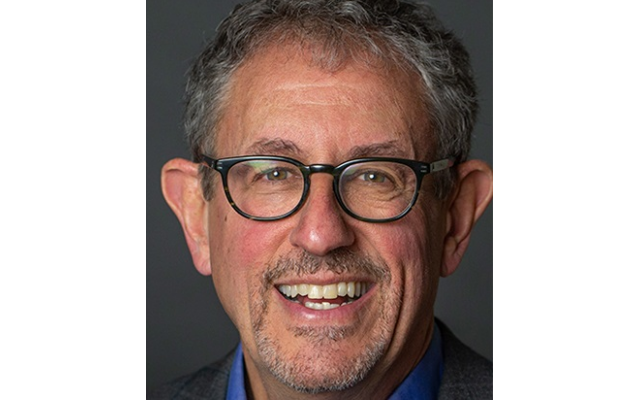Israeli Democracy – What’s an American Jew to Do?
Shai Robkins expresses a call to action for all American and Diaspora Jews to remain concerned about the ongoing turmoil in Israel.
Shai Robkin is the chair of the Atlanta Regional Council of the New Israel Fund (www.nif.org).
On Feb. 2, a Times of Israel op-ed appeared under the title, “An open letter to Israel’s friends in North America.” Its subtitle read, “Diaspora Jews have both the right and the responsibility to speak out against a government that is undermining our society’s cohesion and its democratic ethos.” The letter read, in part, as follows:
“We are taking the unusual step of directly addressing you at a moment of acute crisis in Israel. We write with a sense of anguish and anxiety for the future of our country…We have explained and defended Israel against the campaign of distortions that seeks to turn the Jewish state into a pariah and will proudly continue to do so…Today, though, protecting Israel also means defending it from a political leadership that is undermining our society’s cohesion and its democratic ethos, the foundations of the Israeli success story…It will also threaten Israeli-American relations, and it will do grave damage to our relations with you, our sisters and brothers in the Diaspora…Israel belongs, first of all, to its citizens, and they have the final word. But Israel also matters to the entire Jewish people. When an Israeli government strays beyond what your commitments to liberal democracy can abide, you have both the right and the responsibility to speak up…Israeli leaders need to hear where you stand. North American Jews and their leaders must make clear to this government that if it continues on the path to transforming Israel into a country of which Diaspora Jews can no longer be proud, there will be no business as usual.”
This letter was not signed by anyone identified with the Israeli left. On the contrary, the authors – Matti Friedman, Daniel Gordis and Yossi Klein-Halevi – are well known centrists and on some issues, even right leaning. The authors make it clear that, for them, asking American Jews to involve themselves in an internal Israel political issue would have been, until now, unthinkable. It is only now, with the state of Israeli democracy hanging in the balance that they want Israeli leaders to hear where American Jews stand.
Some American Jewish organizations have indeed issued public statements to that effect. But what exactly are you and I, American Jews who care deeply about Israel but do not own powerful organizational credentials, supposed to do? Some go out to the street to make their voices heard, including here in Atlanta where pro-democracy demonstrators have gathered regularly on Sunday afternoons in front of the Israeli consulate. Others sign petitions and write letters. But let’s be honest.
“Business as usual” in terms of American Jewry’s relationship with Israel has always been defined by financial support more than anything else.
Throughout Israel’s history, American Jews and Jewish organizations have, primarily through their financial contributions, involved themselves in matters that many, including the authors of the letter, believed should be determined by Israeli citizens alone without any outside influence. In fact, American charitable donations, whether the donors themselves are aware of it or not, have been instrumental in the current government’s drive to overhaul Israel’s judicial system.
The right-leaning, New York-based Tikvah Fund has traditionally underwritten educational projects that few, if any, would consider controversial. However, it has recently turned its attention to supporting groups, such as the Kohelet Policy Forum, that want to revamp society by way of implanting American-style conservatism into Israel. Six months ago, few Israelis had ever heard of the low profile Kohelet Policy Forum, the thinktank that has been instrumental in writing the judicial overhaul proposals and that is closely aligned with those in power pushing them. The Tikvah Fund also helped in 2019 to establish the Israel Law and Liberty Forum, created in the image of the American Federalist Society, an organization that has been working for 40 years now to attract and cultivate right-wing candidates for the bench.
On the other hand, we have watched with awe and admiration the hundreds of thousands of Israelis, who have come together organically to oppose the proposed judicial overhaul. And, for decades, there have been Israeli NGOs that have worked tirelessly to advance democracy and human rights. Among them is the Israel Democracy Institute, the existence of which is owed to the largesse of our own hometown philanthropic hero, Bernie Marcus. The non-partisan IDI thinktank was founded in 1991 as a “center of research and action dedicated to strengthening the foundations of Israeli democracy.”
As we try to answer the call to action from Friedman, Gordis and Klein-Halevi, we should remind ourselves that while recent events have put Israeli democracy onto the front pages of newspapers around the world for the moment, the struggle for democracy requires not only immediate action but constant vigilance year after year and decade after decade. The current crisis calls for us to write letters, sign petitions, demonstrate and donate to organizations that are leading the protests in Israel. But regardless of how the immediate issue resolves or does not resolve itself, if we are truly committed to Israel, we must invest for the long run. In his creation of and support for the Israel Democracy Institute, Bernie Marcus has provided us with a roadmap that we can all follow to do just that.
Shai Robkin is the president of Robkin Behavioral Economics.




comments